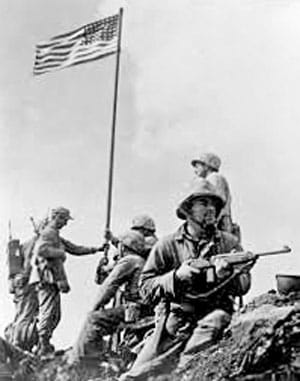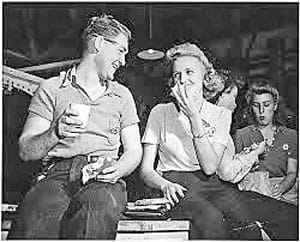What everyone ought to know about the “Greatest Generation” (Part two of a seven-part series)


“The Greatest Generation” valued loyalty to family, country and work; this played an important role in living through two world wars and the Great Depression.

“This generation of Americans has a rendezvous with destiny.”
— Franklin Delano Roosevelt
By Michelle Post; courtesy photos
I am not sure of the answers I would receive if I asked the younger generations these questions: What was the Great Depression? What was the name of the war to end all wars? Who was Charles Lindbergh, and what did he do? What was the name of the first “talkie”?
However, on the other side of that coin, I could not answer many related questions about the younger generations either. And offering insight into each generation and providing a common ground where the generations can come together and learn from their similarities and differences is the point of this series.
One favorite generational expert is Dr. Morris Massey, and he discusses generations this way, “What you are is where you were when.” Generational studies are necessary, for they help give insight into who we are based on where we were when growing up, and this means more than just geographical location. Dr. Massey discusses that we are value-programmed, and 90 percent of our value system is locked in at age 10, and only a significant emotional event can alter that value system. 
People born before 1925 (considered part of the “Greatest Generation”) worked with pride to get the job done.

Dr. Massey submits there are nine external factors that affect an individual’s value system: Family, friends, religion, technology, school, media/advertising, music, income and geography. Individuals go through three value development cycles: Imprinting (age 1-5), modeling (age 6-10) and socializing (age 11-20.) When you add the external factors with the value development cycles, an understanding of how each generation thinks, believes and acts can offer insight into who they are and why.
So, what are the Greatest Generation’s characteristics regarding: (1) Core values; (2) Family; (3) Money; (4) Technology; and (5) Work? The Greatest Generation had a profound sense of personal responsibility for family, country and work. This generation had humble natures, with a norm for dignity and modesty. Everyone worked to survive and performed his or her work with pride and commitment to getting the job done. This generation did not believe in debt, and they saved and could account for every penny earned and spent. Finally, the Greatest Generation stood for loyalty and commitment, and a man’s word was good as gold.